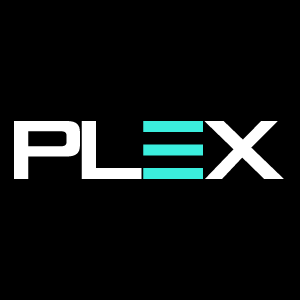

Now Available!
Get your copy of the 7th Annual State of Smart Manufacturing and hear from 300+ manufacturers in this new survey report!
Subscribe to Our Blog
For a monthly digest of expert insights, data points, and tips like the ones in this article.
Automation Fair – From Chaos to Control Maximizing Efficiency With Plex DemandCaster Supply Chain Planning
Smart Manufacturing, State of Smart Manufacturing, Manufacturing Execution System (MES), Manufacturing IntelligenceContinuing with our discussion of how Plex Systems products will play a role in Rockwell Automation's Automation Fair 2023 in Boston, MA, November 6-9th, 2023: Ara Surenian, Vice President of Product Management – Rockwell Automation, sat down to discuss how Plex DemandCaster Supply Chain Planning software can help maximize efficiency by bringing control to chaos.
Why Chaos is Inherent to Manual Planning Systems
Chaos in planning was traditionally a given. Competing and uncertain inputs, time-lagged data, manual human analysis, and more contribute to a chaotic process. Ara believes that most chaos in planning is due to manual processes.
Because planning is inherently a dynamic process, things are constantly changing.
That can include sudden demand shifts driven by something as simple as a Tweet by an influencer, and the floodgate of demand can impact a production plan immediately. Manual processes are often overwhelmed when such disruption occurs. And even when stable, it is still often a guessing game.
How Real-Time Data Ushers in Control
Ara continued to point out that the more automated your planning is and the more embedded it is in day-to-day processes, the better positioned a manufacturer is to address changes to forecasts and planning as they come.
This automated access to real-time data allows planners to be much more granular in their approach to analysis. Because a smart manufacturing system can access machine and production data, planners can see what is happening to demand.
Ara continued that this visibility allows you to shift resources, adjust capacity planning, schedule labor utilization, shore up stock levels, and more. By contrast, those same data-driven insights can be used to respond when demand drops quickly.
Access to data gives companies control over their resources and inputs. And it moves planning from a chaotic reactionary exercise to a controlled proactive one.
The Benefits of Control
Ara identified the critical benefits of having control of your data, beginning with predictability.
Predictions are more accurate over extended periods, with data-driven analysis reflecting real-world conditions.
That predictability over time and at a more granular level lets companies plan workloads, production schedules, labor utilization, inventory, and logistics cost-effectively.
He continued by identifying profitability as the next critical benefit. According to Ara:
"A predictable organization tends to be more profitable and has higher revenue than its peers."
That predictability is valuable for consumers, suppliers, and the supply chain. In today's world of ongoing significant disruption, the ability to formulate a plan that can be reliably executed translates into higher profits.
Finite Scheduling
Ara continued to discuss finite planning as part of Plex supply chain planning software. He reminded us that the current cloud-based solution has a finite scheduler already embedded. But Plex is planning to roll out a standalone finite scheduler soon.
He explained that this standalone module was developed because Plex detected a need within the market for a solution that does end-to-end planning and scheduling. He said that this module would be positioned to dovetail nicely with other Rockwell products to create an environment that can deliver a predictable and attainable schedule in a standalone module.
According to Ara, "The biggest reason why finite scheduling tends to fail in companies is the inputs are garbage in and garbage out. We're building this with the capability to supplement that input data with processes that ensure the accuracy of inputs."
Predictability and Execution
Companies can better execute production plans by creating predictability through data control. When planning is aligned with scheduling, you can plan for the realities of the demand environment using the capacities, skillsets, and resources available.
This reality allows decision-makers to choose which variables they need to achieve and put a plan in place for managing those variables. This is where data-driven demand and supply planning most impacts inventory, maintenance, and production.
Without the granular level of analysis allowed by a smart platform and robust software, plans run the risk of overages, shortages, or delays. However, those risks are mitigated when creating a digital thread using real-time data.
Choosing Control
Ara closed his thoughts by reiterating the importance of clarity of organizational goals. The discipline of data is required to implement control, but it still requires a deep knowledge of one's business and a great deal of cross-functional alignment.
Ara will present From Chaos to Control as one of three presentations at Automation Fair 2023 on November 6-9th. Plex will also have a booth and demos so that attendees looking to gain control over their planning chaos can see the system in action, including the new finite planning standalone module.
You can find Ara there or contact us to discuss it further.


